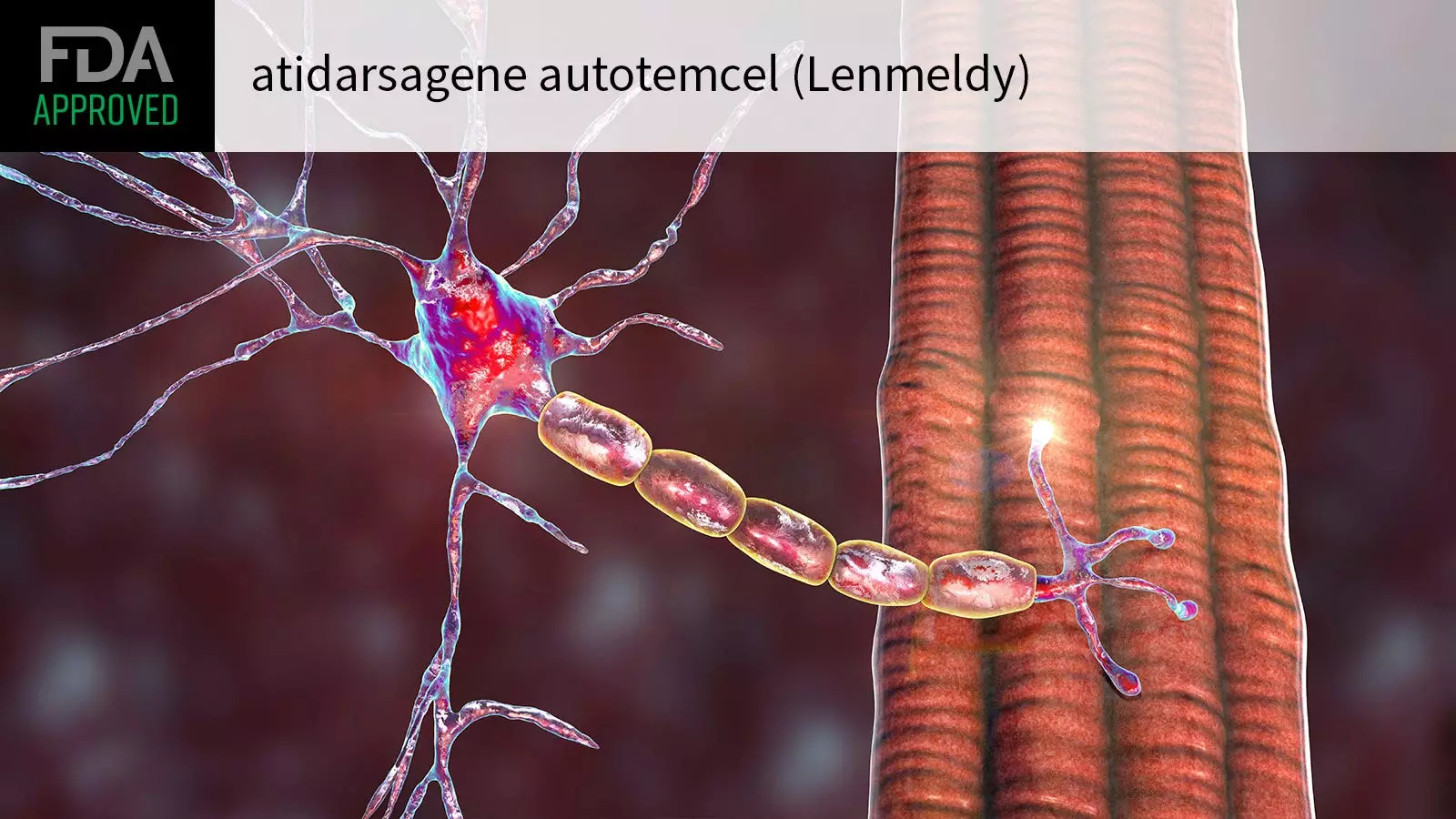The FDA recently approved atidarsagene autotemcel (arsa-cel; Lenmeldy) as the first gene therapy treatment for children with pre-symptomatic late infantile, pre-symptomatic early juvenile, or early symptomatic early juvenile metachromatic leukodystrophy (MLD). This groundbreaking announcement marks a significant milestone in the treatment of this rare genetic disease, offering hope to children affected by MLD.
MLD is a genetic disease caused by a mutation in the ARSA gene, leading to the accumulation of sulfatides in the central and peripheral nervous systems. This accumulation results in progressive dysmyelination, neuroinflammation, and neurodegeneration, causing loss of motor and cognitive functions. Unfortunately, MLD has no cure, making the approval of arsa-cel a significant advancement in the field of gene therapy.
Arsa-cel is a one-time single-dose infusion made from a patient’s hematopoietic stem cells that have been modified to include functional copies of the ARSA gene. Clinical trials have shown that arsa-cel significantly reduces the risk of severe motor impairment or death compared to no treatment. Children who received arsa-cel demonstrated improved outcomes, with a higher survival rate and better motor and cognitive functions compared to untreated children.
While arsa-cel shows promising results in treating MLD, there are potential risks and side effects associated with the treatment. Common adverse events include fever, low white blood cell count, mouth sores, respiratory infections, and rash. Patients receiving arsa-cel should be monitored closely for neutrophil counts, risk of delayed platelet engraftment, and potential complications such as blood clots or encephalitis. Long-term monitoring for hematologic malignancies is also recommended, requiring annual complete blood counts for at least 15 years post-treatment.
The FDA’s approval of atidarsagene autotemcel (arsa-cel; Lenmeldy) as the first gene therapy treatment for children with MLD is a significant breakthrough in the field of rare genetic diseases. This innovative treatment offers hope to children affected by MLD, providing a potential solution to slow or stop disease progression and improve overall quality of life. Despite the potential risks and side effects associated with arsa-cel treatment, the benefits far outweigh the drawbacks, making it a milestone achievement in the advancement of gene therapy.

Leave a Reply